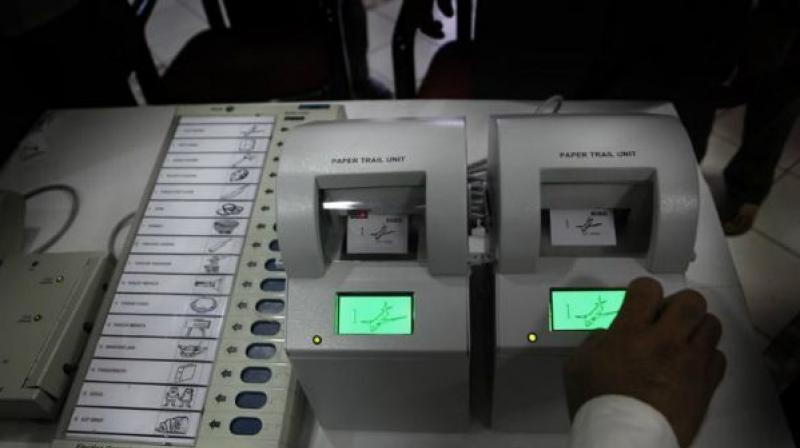Bar Council of India elections going in way of RK Nagar bypoll
Bribery, corruption, money power, caste card, violence, selling and buying votes, malpractice are synonyms of the Indian election process.

Bribery, corruption, money power, caste card, violence, selling and buying votes, malpractice are synonyms of the Indian election process. The ensuing Bar Council election to be held on March 28 is not an exception.
These are the opening lines in the order of February 16 from the Madurai Bench of Madras high court, which contained a host of directions for monitoring and proper conduct of the elections to Bar Council of Tamil Nadu and Puducherry (BCTP).
By orders on February 21, the apex court granted interim stay of the said order sans the need to disclose the criminal antecedents of the contestants.
The election itself is being conducted thanks to the stern directions of the apex court in December 2017, rather belatedly, as the terms of the incumbents had long since lapsed. The high court is now seized of it in the wake of a letter addressed by the Advocate-General of Tamil Nadu - who sits at the apex of the BCT in ex office capacity - expressing his inability to oversee the conduct of the elections as he found that there was no intention to allow the conduct of free and fair elections.
Picking up the thread from this letter which has shamed the advocate community at large, as members of BCT/P, the High court has amidst swirling news reports on '30,000 per vote being offered by the candidates, chosen to intervene in a big way.
In fact, the corridors of the courts are said to full of facts of bulk booking of votes from Bar Associations in the districts - with offers of infrastructure facilities and even trips abroad to South East Asian cities to office bearers. Stunningly, there was even the reported instance brought to the court's notice that the welfare fund of 1,650 advocates was paid on a single day, amounting to ?1.81 crore.
Obviously, the payment may have been sponsored by some candidate in return for votes.
Elections to the prestigious Bar Council, representing the interest of thousands of enrolled advocates in practice are being conducted under the cloud of ‘bribery, corruption’.
The nobility in the profession has gone for a huge toss. The fair name of the practising brethren stands besmirched and despite the close monitoring of the elections, with even retired Chief Justices and judges of Madras high court being appointed as returning officers, the underbelly is very visible.
The RK Nagar by election, pinnacle in the implementation of Thirumangalam formula, where money power trumped all else, seems like a picnic compared to the goings on in the BCT/P elections.
In fact, the high court has expressed utter surprise and dismay as to why the contestants were vying with each other to spend to get elected? Was there more than meets the eye in the rat race to the exclusive club of BCT/P elected office bearer team?
BCI and its councils in the states have a long and glorious history which stands in tatters today thanks to the shenanigans and vulgar display in jostling for positions.
Its hoary past goes back to 1879 and 1926 legislations. When the British ruled India, the disciplinary control over the members of the Bar vested in the High Courts.
Practitioners, mostly Indians, fought for freedom from being tied to the apron strings of Judiciary and succeeded in becoming autonomous.
It was a hard-won freedom for a tryst with justice. It may have turned out to be a mirage as the members of BCI do not reflect the glory of the past.
It is not the genuine leaders of the Bar like Harish Salve or Fali Nariman or Soli Sorabjee or a K Parasaran, who are anywhere close to leading the BCI.
They stand no chance to get elected to BCI in the present climate. Rather, they would be trounced by the electable leaders who know networking and how to manage votes.
That fall in standards, come election time, is steep and ominous and makes sad reading. Considering that it was the legal fraternity which led the freedom struggle, it is utter shame time now.
In the wake of the decision of the Supreme Court in Mahipal Singh Rana vs State of UP (2016) dealing with a case of criminal contempt against an advocate for intimidating a civil division judge, the Law Commission of India (LCI) was called upon to revisit the Advocates Act,1961, in particular, on the ‘disciplinary control’ over the legal profession. It makes sad reading in recording instance after instance of misdemeanours and boycott of courts for the most ridiculous of causes.
The fall in standards has been captured vividly and recommendations have been issued to provide for a stricter regime of disciplinary control over the members of the noble profession of law with judges and citizens from outside the legal profession to sit in judgment. What a fall.

